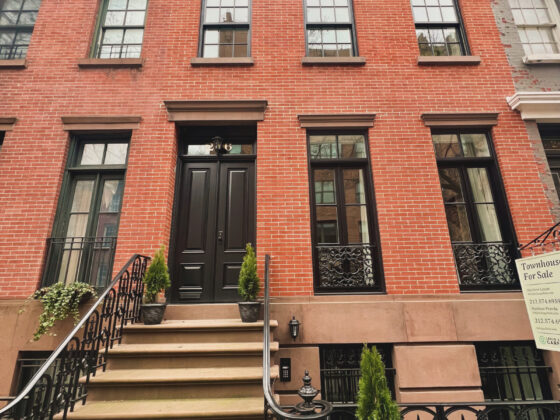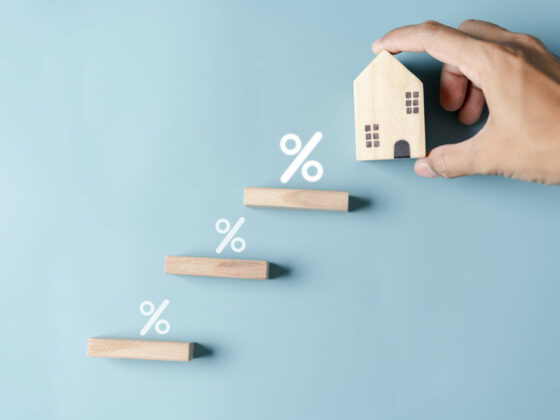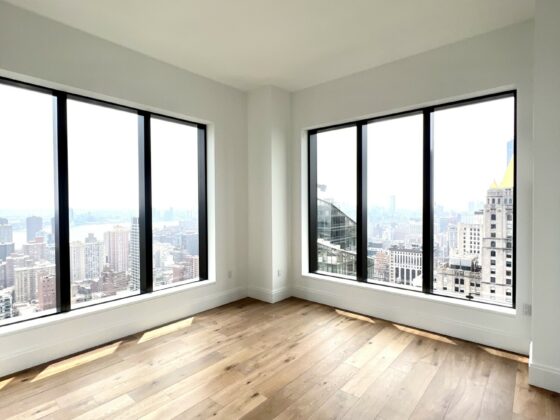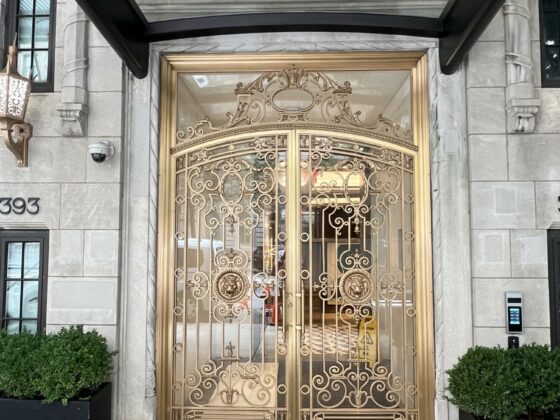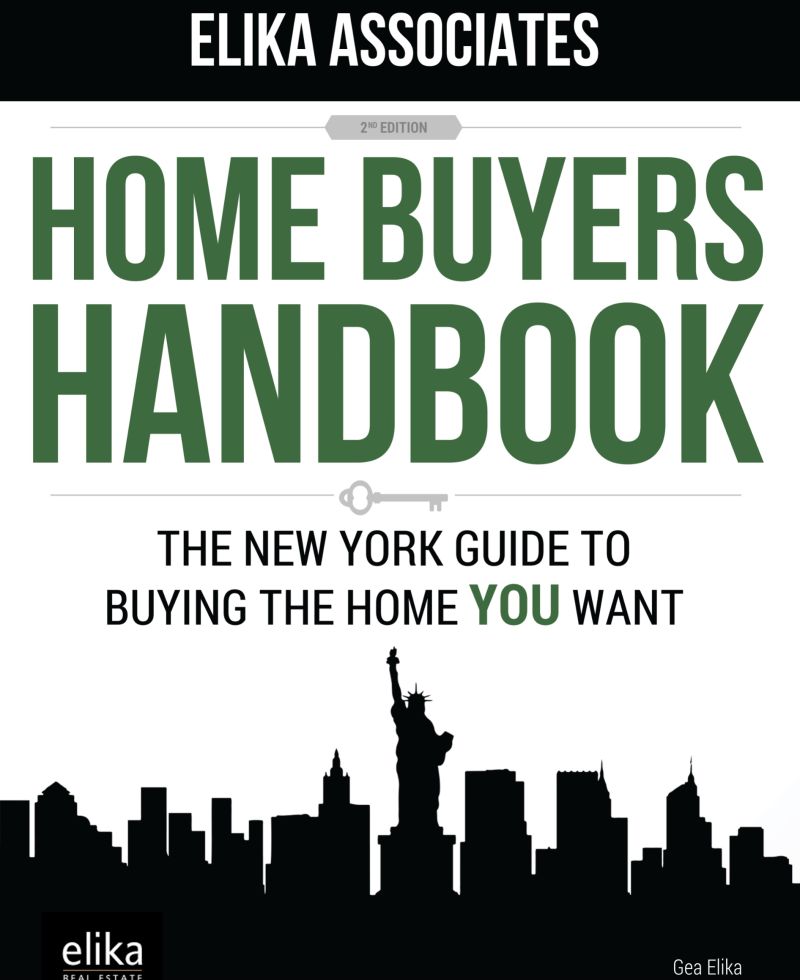Table of Contents Show
New York real estate has always been a highly coveted asset, especially in Manhattan. The city attracts more international buyers looking to get their slice of the Big Apple every year. Unfortunately, the past year has seen several changes dent what is usually a fast-paced and busy foreign market. You can attribute much of the blame to the dollar’s strength against; the yen and euro and several domestic issues. 2020 is an election year, a time that always causes market jitters. Also, the NYC market experienced some waves last year when NYS changed the mansion tax. A series of rent reforms and broker fee developments have complicated the business for landlords.
This has made the NYC market enter a cold phase for international buyers. Fortunately, there is some good in this. A colder market means less competition for those buyers still interested. It also means a high chance of scoring a better deal when many sellers fight each other tooth-and-nail to attract a buyer. But if you’re an international buyer eager to enter the market, you need to know essential things you need to know.
Buying real estate as a foreigner in New York City requires a few extra steps and considerations. But, regardless of the state of the market, these are some timeless considerations every foreign buyer needs to take into account. Below are the five most important ones.
Better a Condo than a Co-opBetter a Condo than a Co-op
Cooperative buildings (co-ops) make up around 75% of NYC’s housing stock. They can range in size from simple 1-bedroom units to super-deluxe penthouses. Unfortunately, foreign buyers won’t find it easy to buy one due to their ownership structure. As you can probably guess from the name, co-op buildings function somewhat like a corporation. Instead of receiving a deed, buyers receive shares (the number depends on their unit’s size). But anyone who hopes to become a shareholder must navigate a very intrusive vetting process by the building’s co-op board. Buyers must meet strict financial requirements, make numerous disclosures, and provide references.
Additionally, co-ops have strict subletting policies, often not allowing an owner to sublet. Finally, the whole thing can be very unappealing for foreign buyers, many of which won’t meet the financial requirements anyway since they will need to provide U.S. tax returns.
Buy a CondoBuy a Condo
The easiest option, and always has been, is a condominium. Like co-ops, they can come in all sizes and include common spaces, such as lounges and gyms, that all residents can share. But unlike co-ops, a purchase here will consist of a deed and the freedom to do what you want with space. Condos can be easily bought, sold, and rented out by foreign buyers with little to no strings attached. But this flexibility does come at a price. Condos tend to be 30% more expensive than co-ops of comparative size. They also tend to come with higher closing costs, which must be borne in mind when calculating total closing costs. As a foreign buyer, you’ll quickly see that condos are the best option.
If You Need a Loan, You’ll Need a Credit History.If You Need a Loan, You’ll Need a Credit History.
If you’re in a hurry to buy now, an all-cash purchase will eliminate the mortgage process and entice any seller you approach. But if you don’t mind a little waiting, now is a perfect time to take advantage of historically low-interest rates. Even buyers who can afford to pay all cash have started taking out mortgages in increasing numbers over the past year. Iberia Bank is one of the leading banks for non-citizens needing a mortgage.
But for a foreign buyer, taking out a mortgage can present a problem. First, you’ll need a U.S. credit history. The path towards this is to apply for social security or tax identification number and get a sound credit card. Then start making purchases on that card and pay your bills every time they come due. After 1-2 years of this, you should have a solid enough credit rating to start the mortgage application process. Of course, this will mean waiting a while if you’ve just arrived in the U.S. for the first time. But if you plan to buy someday in the future, the sooner you start building your credit, the better.
Understand the Tax ImplicationsUnderstand the Tax Implications
Any major property purchase will have tax implications, which is so for non-U.S citizens. This is an important aspect of any deal and must be thoroughly understood before purchasing. The following are the taxes you need to be aware of:
Mansion TaxMansion Tax
- A statewide tax applies to all homes of $1 million or more. It must be paid by the buyer within 15 days of closing and applies to all residential properties in New York. Previously, it was a tax of 1% on any property at or above $1 million. But last year, changes were made that make the tax rate rise incrementally for purchases of $2 million or more. It finally caps out at 3.90% for properties sold for $25 million or more.
New Development TaxNew Development Tax
- An additional state tax applies to new developments. This often gets passed on to buyers and can vary from 0.4% to 1.4% for properties worth more than $500,000.
Recording TaxRecording Tax
- This is a mortgage recording tax that applies to anyone who purchases in NYC with the help of a mortgage. It requires buyers to pay 2.05% on mortgage amounts under $500,000 and 2.175% on $500,000. Remember that these taxes apply to the mortgage amount, not the purchase price. Also, it’s worth mentioning that mortgage recording taxes don’t apply to co-ops.
Capital Gains TaxCapital Gains Tax
- If you ever decide to sell later, the federal and N.Y. states receive a tax from the sale. The cost of this depends on whether you’re selling your primary residence or an investment. For residents in N.Y. state, the tax is 15% for the federal government and about 10% for city taxes. But for non-residents, the total tax rate is 30%
FIRPTAFIRPTA
- Under the Foreign Investment in Real Property Act, the U.S. government withholds taxes to ensure non-residents pay their taxes. N.Y. state withholds 6.85%, while the Internal Revenue Service (IRS) withholds an additional 10%. Once the sale is completed, the seller must file a Statement of Withholding on Disposition by Foreign Persons of United States Real Property Interest form with the IRS. The only way to avoid these taxes is to create a Limited Liability Company (LLC).
Set Up a Limited Liability Company (LLC)Set Up a Limited Liability Company (LLC)
Due to these tax implications, it will be in every foreign buyer’s best interest to try and mitigate them as much as possible. The best way to do that is by creating an LLC. This will be something that your buyer’s agent can walk you through and get set up. An LLC is a company formed between people who want to accomplish a specific goal without necessarily tying themselves permanently. A property purchase is a perfect example of this.
LLC’s come with many protections and benefits that make them very appealing to foreign investors. One of their major advantages is that when the property is sold, its title is transferred to the LLC—allowing you to avoid any taxes on the sale. Other advantages of an LLC include protections against disclosures, which can help protect your other assets in case of any legal dispute.
Assemble an A-TeamAssemble an A-Team
Any property purchase involves many complexities, which is more so for foreign buyers. To make sure things go smoothly, you’ll need a good team to help you through every process step. This team will include a real estate broker, an accountant, a tax advisor, a real estate attorney, a mortgage broker, and perhaps a contractor if you think you’ll be doing some renovating. If you don’t know where to start, schedule a meeting with a Buyer’s Agent today. They can provide you with a list of professionals in the industry that they can vouch for. Also, walk you through the entire buying process and answer any questions you might have. Great things start with small steps, and purchasing a home in NYC is no different.
Recently, the number of foreign buyers scooping up NYC properties has increased. Mainly due to the lack of individual taxes or levies on international buyers. International buyers are treated no differently than domestic buyers. The only exception is your tax treatment should you choose to sell or if you were to pass away. To make the process as straightforward as possible, we recommend that you hire an experienced buyer’s broker. They’ll serve as a guide and put you in contact with all the right people.
Any successful property acquisition involves two distinct phases—the first, initial planning, and the second, finding and buying.
Planning to Buy in New York CityPlanning to Buy in New York City
Choose an ideal ownership structure.Choose an ideal ownership structure.
As a foreign buyer, you’ll need to decide on the ideal tax and ownership structure before further consideration. The federal government, N.Y. state, and New York City each impose an income tax on rental income generated by properties in NYC. The federal government and New York State impose a hefty estate tax on the property’s value transferred on the owner’s death.
If Combined, these taxes can be as high as 65% and apply to gains from the property sale. Property is valued at over $60,000; the federal government imposes up to a 40% tax. The New York State Estate Tax has a maximum rate of 16%. Unlike U.S. citizens, foreigners do not enjoy exceptions on federal or state estate taxes. For foreign buyers, a clever way of getting around this is setting up two separate entities. You can purchase the property through a Limited Liability Company and form an offshore company to act as LLC’s sole member and owner. You’ll need to do some planning and seek the services of an experienced attorney if you choose to go this road.
Obtain a U.S. Tax IDObtain a U.S. Tax ID
Whether you’re planning to own the property in your name or through an LLC, you’ll still need to obtain a U.S. tax I.D. Individuals need an Individual Taxpayer Identification Number (ITIN), while business entities need an Employer Identification Number (EIN). These are required for tax reporting and opening a U.S. bank account. The application process for these I.D.s can take ten weeks, so you should apply for them in advance.
You can apply for an ITIN through the Internal Revenue Service (IRS) by submitting Form W-7, proof of identity, and proof of foreign status. The most commonly used proof of identity is a foreign passport. However, sending your original passport wouldn’t be prudent; You can get a certified copy from the original issuing agency. Your embassy or consulate can help with this.
Open a U.S. Bank account.Open a U.S. Bank account.
There is no hindrance to foreigners from opening U.S. bank accounts. However, all banks must follow Know Your Customer (KYC) rules. These rules require a bank to obtain specific information on their customers, such as their ITIN, EIN, a copy of the customer’s passport or driver’s license, information on their sources of income, and copies of their utility bills. The process can take several weeks and depends on how soon an ETIN or EIN can be acquired.
Finding and Buying Property in NYCFinding and Buying Property in NYC
Find a propertyFind a property
To help you navigate the NYC real estate market, you should hire an experienced local buyer’s agent. Preferably one who specializes in the neighborhood that you’re interested in. As a foreigner, you’ll be largely restricted to condos in your search. Condos present the least difficulty as your condo fees will cover the insurance policy, building maintenance, and maybe some of the utility bills. Co-ops have rather strict rules on subletting and home rules which require a buyer to make the property their primary residence. Multi-family or townhouses also present difficulties because of the maintenance work required.
FinancingFinancing
It surprises many foreign buyers to learn that they can qualify for financing from a U.S. bank. However, this will come with some restrictions, such as a limit on the loan amount and a requirement to keep a certain amount of money on deposit with the bank. As a reference, the current average rate for a 30-year mortgage is 4.48% (2018).
Make an offerMake an offer
Once you’ve found a property you are satisfied with, it’s time to make an offer. Your broker will handle any negotiations and work to get the best deal possible in your favor. Once an offer is accepted, the seller will send a deal sheet to all parties involved. This provides a broad overview of the transaction and lists the who’s who in the deal, such as the brokers, the attorneys, the lender, and the buyer and seller.
Sign the contract of sale and make the down paymentSign the contract of sale and make the down payment
Once the final details have been hammered out, the seller’s attorney will issue an agreement of sale. In NYC, a contract does not become binding until both parties have signed, and the seller retains the right to make the final signature which gives them a lot of leeway in negotiations. Once signed, it becomes legally binding, with neither party can back out with legal consequences. At this point, you, the buyer, will be asked to make the down payment, usually a minimum of 10% of the offer price. This will be kept in an escrow account until the final closing.
Submit your application to the condo boardSubmit your application to the condo board
Condo boards have the right of first refusal, so even if you’ve reached an agreement with the seller, you’ll still pass the condo board application. Your application package will include your financials, the transaction in question, and your details. Condo boards are much less intrusive than co-op boards, but you should ensure everything is in order before applying. Most contracts of a sale will include a clause that allows the buyer out of the contract with no legal consequences if the condo board rejects their application.
Close the sale by the power of attorneyClose the sale by the power of attorney
The time it takes between the signing of the contract and the closing date is subject to many variables, such as financing, board approval, and the people involved. In general, a closing in NYC takes 30-60 days, through 90 days is not uncommon. How fast and smooth the whole process relies a lot on the competency of your attorney. In New York State, an attorney can only do a closing, so make sure you choose a good one.
Scheduling an appointment can take one to three weeks, so foreign buyers have one set up well ahead of time. Fortunately, the buyer does not need to be present on the closing date. The seller pays the remaining monies and closing costs, and the property deed is transferred to the seller. You can use a power of attorney to have them act on your behalf. However, a U.S. embassy or consulate must notarize a power of attorney to be declared effective under state law.
The Bottom LineThe Bottom Line
Purchasing property in NYC as a foreign buyer presents little more difficulty than a domestic buyer. If you plan to sublet the apartment or sell it, some extra tax hurdles will be overcome, covered in a future article. However, the process can still belong, so international buyers should have everything well planned out before even looking for a property.



